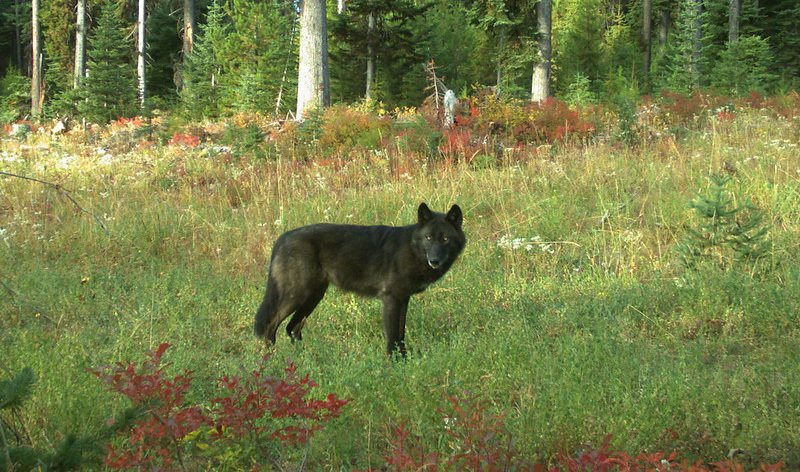ODFW OKs lethal action after wolves attack four cows in Baker County

SALEM, Ore. (KTVZ) -- The Oregon Department of Fish and Wildlife said Thursday it has authorized lethal action and will provide a kill permit to a Baker County livestock producer who requested the option after ODFW confirmed that the Lookout Mountain Pack of wolves killed or injured four of their cows over a two-week period.
Three of the cows were 850- to 950-pound yearlings. The pack has been determined to be chronically depredating and presents a significant risk to livestock present in the area.
The permit allows the livestock producers or their agents to kill up to four uncollared wolves in a designated area (a mix of private land and public land where they have a grazing permit) where wolves are determined to be a significant risk to livestock present. The permit expires Aug. 21 or when livestock are removed from the area, whichever comes first. ODFW staff may kill wolves included in the permit to assist the producer.
Under the Wolf Plan rules, livestock producers must be using and document non-lethal methods appropriate to the situation before lethal control can be considered. Also, there can be no identified circumstances on the property (such as bone piles or carcasses) that could be attracting wolves.
ODFW found no attractants during its investigations of depredations. The producers have been implementing non-lethal measures for years, and since January 2021, these measures included night checking of calving cows, use of rag box, placing calving cows near house and barns in small 30-acre pastures, hazing wolves out of the calving areas, burying dead calves and cows and frequent communication with ODFW on the wolves’ location.
Since cattle were placed in the large rangeland pastures, the livestock producers have checked them frequently, placed cows in specific pastures based on wolf activity, and recorded and communicated wolf presence to ODFW and neighboring producers.
Since the depredations started on July 14, producers have increased their human presence, hazed wolves using firearms, removed injured livestock from pastures, and shifted cattle to pastures with less forage available to try and prevent further conflict.
The current Lookout Mountain wolves were first documented in 2019 and were documented as a breeding pair for the first time in 2020 (meaning they had two pups that survived through the end of the year). Four wolves, including two pups were documented at the end of 2020 (these pups would be yearlings now) and seven 2021 pups were observed in May. Currently both adult breeders have functioning radio collars (a VHF and GPS collar).
"Lethal action is authorized with the goal of putting an end to the chronic depredation, but livestock producers will also continue to use non-lethal measures," the agency said.



